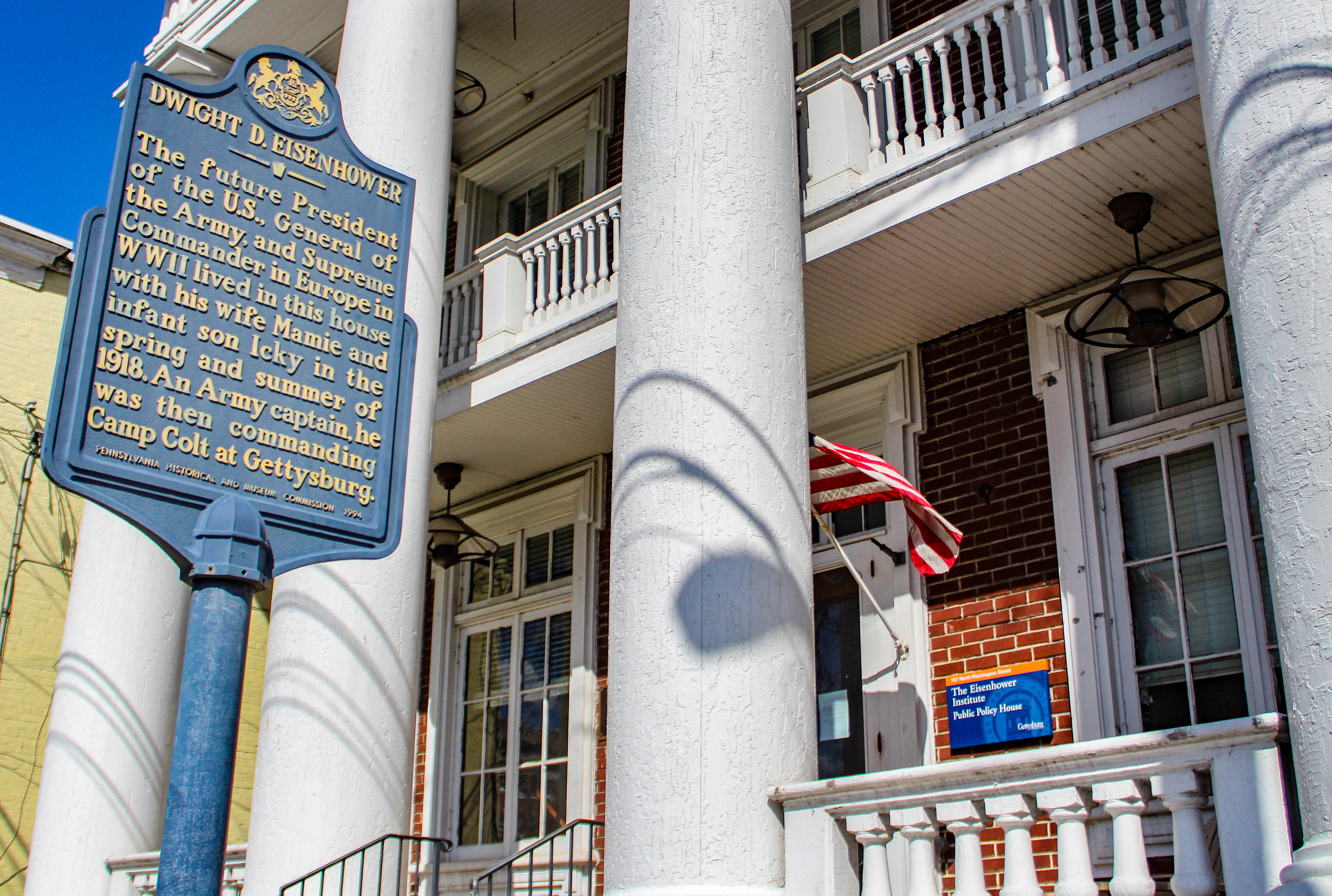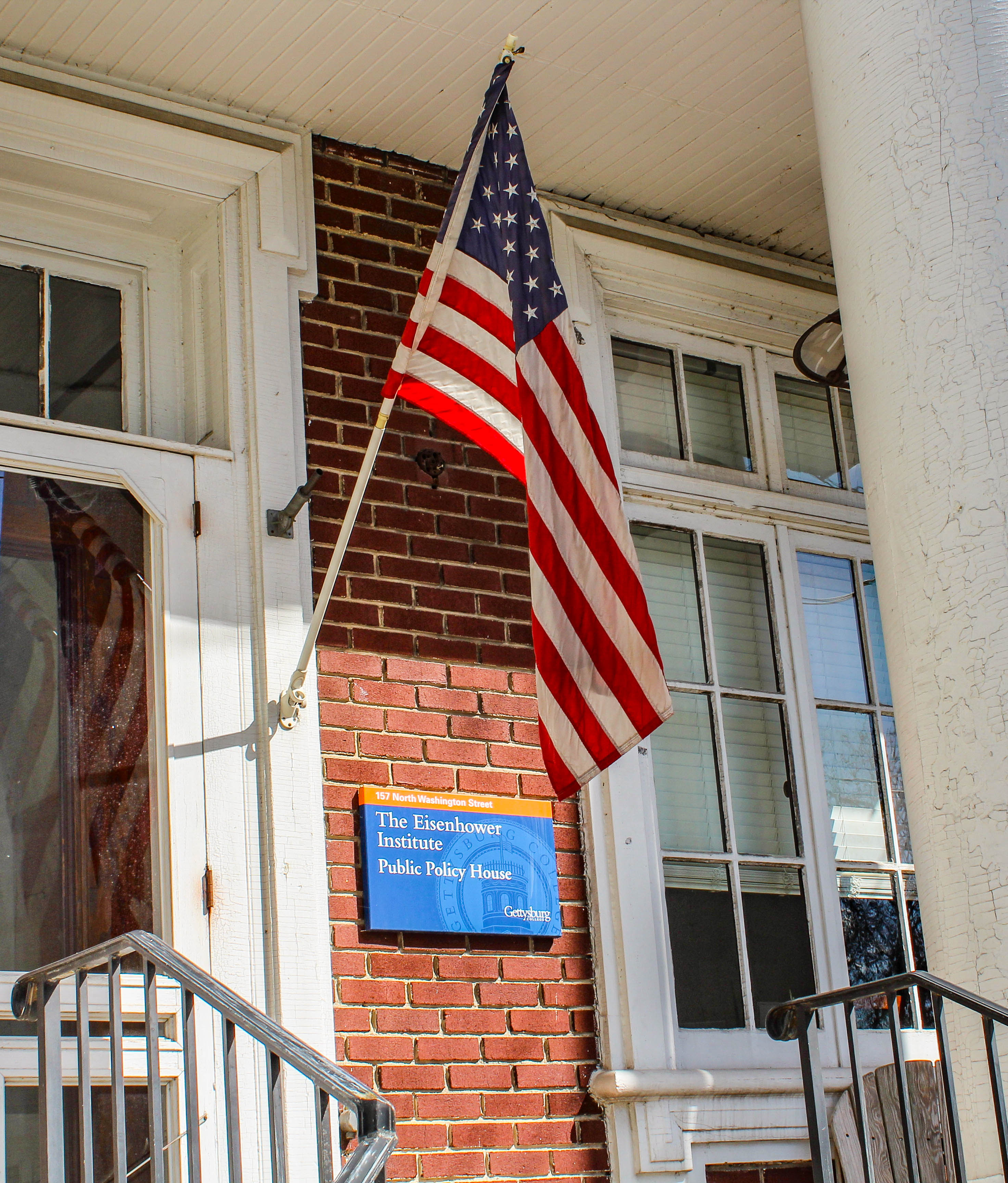
Gettysburg’s Eisenhower House, home to the Eisenhower Institute and EI Undergraduate Fellows, who live on the second floor (Photo Mary Frasier/The Gettysburgian)
By Alli Dayton, Staff Writer
The Eisenhower Institute (EI) prepares students for careers in public, private, and nonprofit sectors through programs that teach students about leadership, networking, and translating their knowledge to positive action. Some of the distinctive program’s year-long or semester-long programs include Washington Connections, Environmental Leadership, Strategy and Leadership in Transformational Times, Contours of the Middle East, Inside Civil Rights, and Women and Leadership.
Like many organizations on Gettysburg College’s campus, the pandemic led to the implementation of a multitude of changes. For one, all EI programs are being held virtually this spring which, in many ways, has resulted in a reframing of the experiential learning opportunities offered.
“Since the outbreak of the pandemic, we have focused on how to enhance the student experience during these challenging times,” said Environmental Leadership Program Director Dr. Howard Ernst. At the onset of the pandemic, the students participating in this specific EI program were conducting research in the field when a State of Emergency was called. This led to “a long and unplanned drive back to campus from South Florida,” he said.
Over a year later, the Environmental Leadership program is being conducted completely online. According to Ernst, another change includes “the decision to offer a less research-intensive version of the Environmental Leadership Program to twice as many students.”
Similarly, the Women and Leadership Program “adapted programming to move into the virtual world,” said Women and Leadership Director and Public Policy Professor Anne Douds.
“We retained our speaker series, added some activities that can be done virtually such as Zoom interviews with women leaders on campus, and we added some readings so we could have some ‘book club’ style sessions.”
Student feedback in response to these changes has been largely positive, despite the virtual nature of the programs.
“We’re missing the invaluable, informal conversations that happen organically during shared travel and activities. That’s what I miss the most.” – Anne Douds
“I don’t feel as though the virtual format hindered the camaraderie of the group,” said Molly Hoffman ’24, a participant in both the Environmental Leadership and Women and Leadership programs. “It may have even enhanced the networking and career readiness component of the programs.”
Nicole Cesanek ’24, a Women and Leadership participant, also finds the online format effective. “I especially enjoy our small group conversations in break out rooms where I get to know some of the other women in the program more personally.”
Autumn Chassie ’23, the program assistant for Women and Leadership, added that the virtual environment allows students “to find new, unique ways to make connections, network, and have an impact.”
“I feel that being virtual has allowed us to have a wider variety of speakers that we may not have been able to meet otherwise for reasons like travel barriers to come to our campus,” added Cesanek.
Still, there are some characteristics of these programs that cannot be replicated through the virtual environment. Travel and in-person opportunities are now no longer feasible options. In the Environmental Leadership Program, for example, Ernst said that “in-person field research is off the table due to safety concerns.”
“There is a lot less opportunity for members and Eisenhower Institute staff to connect in person,” said Chassie. “It also takes away the fantastic opportunity to go on the trip to Washington D.C.”
For Douds, conducting these programs online has led to less opportunities for informal collaboration. “We are missing the invaluable, informal conversations that organically occur during shared travel and activities,” she said. “That’s what I miss the most.”

